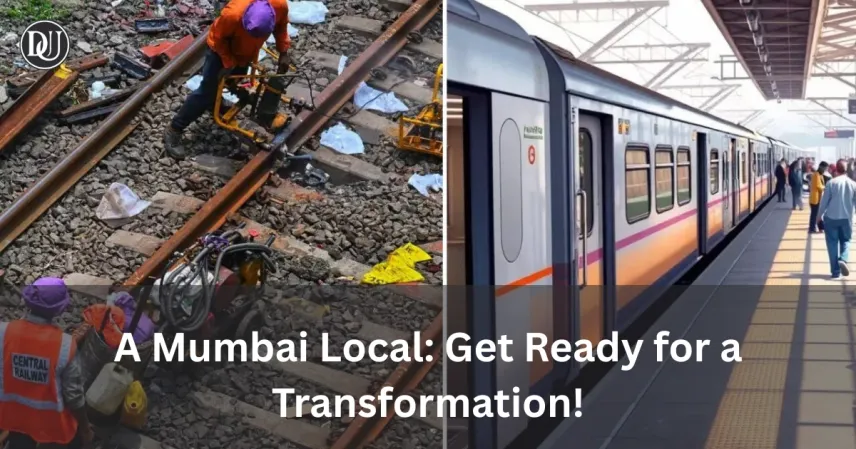You know that feeling, right? That absolute surge of humanity when a Mumbai local train pulls into the station. It’s a dance, a mad scramble, and honestly, a little terrifying sometimes. We’ve all seen it – people hanging out of doors, literally clinging on for dear life. It's just part of the Mumbai experience, or at least, it *was*. But here’s the thing, something big just happened that’s going to shake up that entire scene: after another tragic Mumbai local train accident, Indian Railways is finally, finally announcing automatic doors for local trains. Makes you wonder, why did it take so long?
So, What’s Really Going On with These Automatic Doors?
Honestly, when I first heard this, I thought, “Wait, are they serious?” We’re talking about trains that are the literal lifelines of Mumbai, carrying millions daily. The recent accident, where a passenger unfortunately fell from a crowded train, seems to have been the tipping point. Turns out, this isn't just a casual announcement. This is a pretty significant move that's been in talks for ages, but now it’s actually happening. Think about it: no more desperate lunges to get on or off, no more accidental falls because someone was just trying to commute. It sounds almost too good to be true, doesn't it?
![]()
Here's what I've been thinking about the practical side of this:
- Safety First, Finally: This is the big one. Automatic doors mean a much safer commute for everyone. Less chance of people falling, fewer tragic accidents. It's basic common sense, really.
- Crowd Control (Maybe?): Now, I know what you’re thinking – will this make the trains even more sardine-packed inside? Possibly. But it also means no one can just hang out of the doorway, potentially leading to more organized boarding and deboarding.
- A Shift in Culture: We're so used to the 'door-hanging' phenomenon. This is going to fundamentally change how people interact with the trains. It's a big cultural shift for Mumbaikars, for sure.
Speaking of which, how will the sheer volume of people be managed when doors close automatically? That’s the real challenge, isn't it?
What This Actually Means for Our Daily Lives
This isn't just about a train getting new doors; it's about a fundamental change in how millions of people commute. For years, the open doors have been a symbol of Mumbai's relentless pace, but also its inherent dangers. We've all heard stories, or maybe even seen firsthand, the terrifying moments when someone slips or gets caught. This move by Indian Railways is a huge step forward in prioritizing passenger safety. It's going to redefine the Mumbai local train experience. It's a bit like getting airbags in cars after decades of just seatbelts – a necessary evolution.
![]()
Trust me on this, the initial days will be a bit chaotic. People will have to adapt. But ultimately, this is about making the most crowded railway network in the world a safer place for everyone. It makes you feel a little more secure, doesn't it?
Bottom Line: A Safer Ride Ahead?
So, the takeaway? After another incident, Indian Railways is stepping up to address a long-standing safety concern. Automatic doors on Mumbai local trains. It’s a big deal, a significant investment, and a sign that safety is finally taking center stage. It won’t be a magic bullet for all the train issues, but it’s a massive leap forward for passenger well-being. What do you think – will this change how you view your daily commute?










